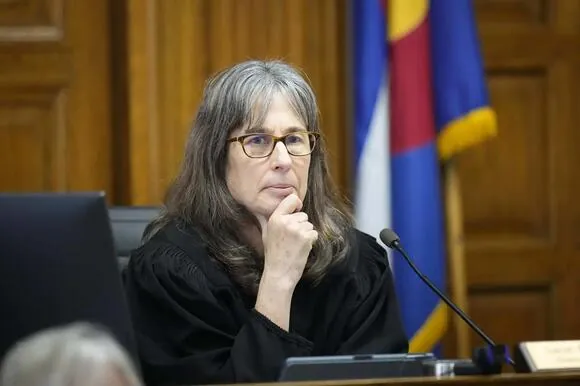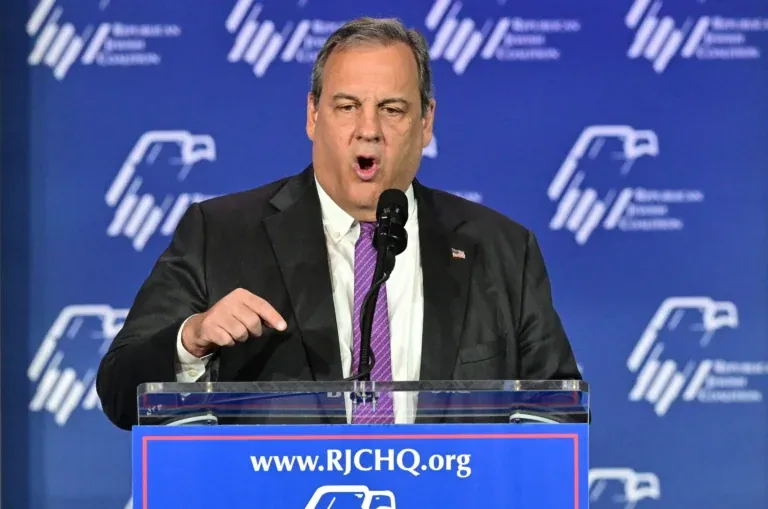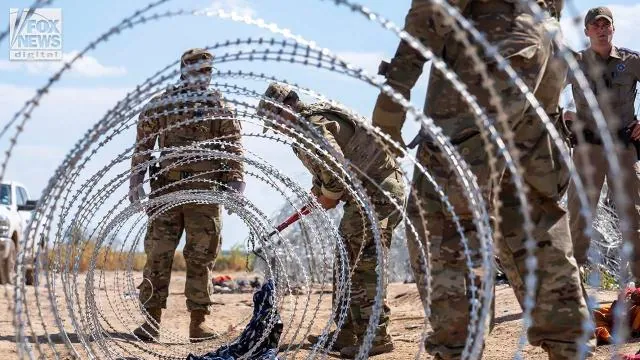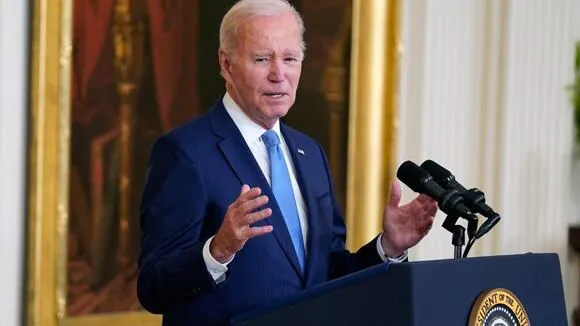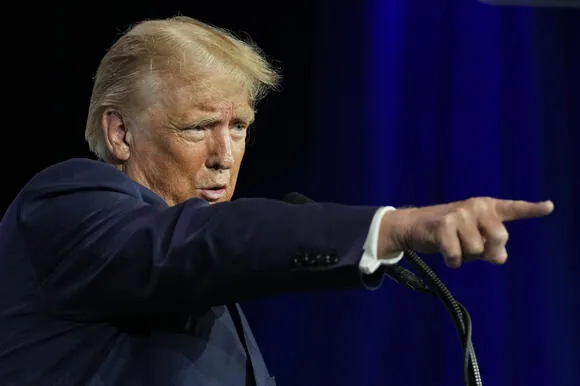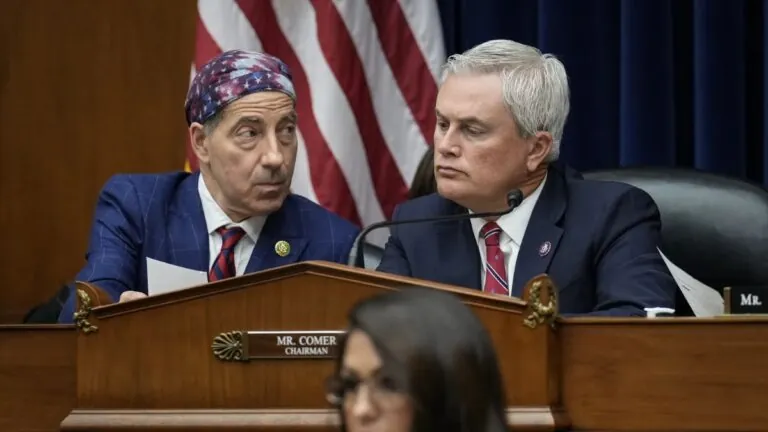Trial to determine if Trump can be barred from offices reaches far back in history for answers
A recent attempt to prevent former President Donald Trump from running for office by invoking the Constitution’s “insurrection clause” delved into the past during Wednesday’s proceedings. A law professor provided testimony, explaining how the clause, which dates back to the aftermath of the Civil War, was initially intended to apply to presidential candidates.
When Gerard Magliocca, a professor at Indiana University, started researching Section Three of the 14th Amendment in late 2020, he found that there was very little academic work on the subject. However, through his research, Magliocca discovered compelling evidence in old court rulings, congressional testimony, and executive orders from past presidents that Section Three applies not only to presidents but also to those who encouraged an insurrection, even if they did not physically participate in it. This evidence dates back 150 years, highlighting the importance of understanding and considering historical precedent when examining the legal implications of current events.
Although Magliocca didn’t explicitly mention Trump’s name, plaintiffs in the case have contended that Colorado should bar him from the ballot due to his involvement in the January 6, 2021, attack on the U.S. Capitol. The assault aimed to disrupt Congress’ certification of Joe Biden’s victory and secure Trump’s power. This argument falls under the provision that was initially created to prevent former Confederates from regaining their previous federal and state positions and seizing control of the government.
Magliocca clarified that the ban was not a form of punishment. According to him, several senators discussed the idea that it was simply an additional requirement for holding office.
On Wednesday, the attorneys representing Donald Trump filed a motion for an immediate verdict, claiming that the plaintiffs failed to provide evidence that Trump “incited” the January 6th riot. They argued that all of Trump’s actions were within the bounds of legal speech. The judge stated that she would make a decision on the motion later in the day.
According to Trump’s legal team, the lawsuit is “anti-democratic,” and they have cautioned against using an obscure provision to disqualify the leading Republican candidate. They believe that such an action would go against the traditions of the world’s oldest democracy. In a video posted on his social media platform, Truth Social, on Tuesday night, Trump criticized the Colorado proceedings.
According to Trump, there is an ongoing fraudulent trial with the intention of illegally removing his name from the ballot.
He made a comment referencing President Joe Biden, stating that if “crooked Joe” and the Democrats succeed in removing his name from the ballot, it would mean the end of free elections in America. He expressed concern that the nation would become a dictatorship, where the president is chosen for the people without their input or a meaningful vote.
There are two ongoing cases, one in Colorado and the other in Minnesota, that have been organized by liberal organizations. The Trump campaign has accused Democrats of devising these lawsuits as a means to undermine the 2024 election. The Minnesota Supreme Court is presently hearing the case on Thursday.
The issue is expected to be ultimately decided by the U.S. Supreme Court. Interestingly, the highest court in the country has yet to weigh in on Section Three, which was primarily utilized from 1868 to 1872. At that time, Congress provided amnesty to numerous former Confederates who had previously been prohibited by this section.
The aforementioned provision prohibits individuals who have taken an oath to uphold the Constitution and have participated in insurrection or rebellion against it, or provided assistance to its enemies, from holding positions in Congress, the military, and federal and state offices. It does not explicitly mention the presidency, instead referring to the position of “elector of president and vice president.”
In the wake of the January 6th attack, the Colorado case brings up some questions that have not yet been addressed in a courtroom setting. One of the primary questions is whether Congress needs to establish a specific process to enforce the ban. Additionally, there is uncertainty about whether the ban applies to the presidency, given that an earlier version of the ban specifically mentioned the office but was later removed. The definition of an “insurrection” under the ban is also a point of contention that needs to be clarified.
In the past few months, legal scholars have been delving into the topic of the impeachment ban, attempting to decipher its origins and implications. Professor Magliocca has conducted extensive research, analyzing dictionaries and court rulings from the mid-19th-century. His findings suggest that the ban was enforced without any formal congressional procedure. Additionally, senators at the time confirmed that the ban applied to the president. Furthermore, the definition of an insurrection was determined to be a massive effort aimed at obstructing the execution of laws.
Some have expressed concerns that utilizing the provision to ban Trump from social media could set a precedent for prohibiting other politicians who engage in peaceful protests against police brutality or other forms of civil disobedience. This could potentially lead to a slippery slope where even conventional politicians become subject to censorship.
According to legal experts, the measure has only been referenced once in the 20th century. This was seen as a basis for Congress’ decision not to seat an anti-war socialist who was elected after World War I. Moreover, the Colorado-based organization called Citizens for Reforming Ethics in Washington has effectively utilized this measure to prevent a rural county commissioner in New Mexico from holding office. This happened after he was found guilty of a misdemeanor for entering the Capitol grounds during the attack and was convicted in federal court.
In the Minnesota challenge, another liberal group invoked the Section Three provision to contest the candidacy of Republican Representatives Marjorie Taylor-Greene from Georgia and Madison Cawthorn from North Carolina for the upcoming 2022 elections. While the case against Taylor-Greene was unsuccessful, Cawthorn’s became irrelevant after he lost in the primary.
The legal team representing Trump was scheduled to initiate their argument on Wednesday afternoon. According to them, their case will comprise evidence that the ex-president made efforts to prevent the violent event that took place on Jan. 6. Additionally, a law professor will also testify, stating that Section Three should not be applicable to Trump.
More News:

